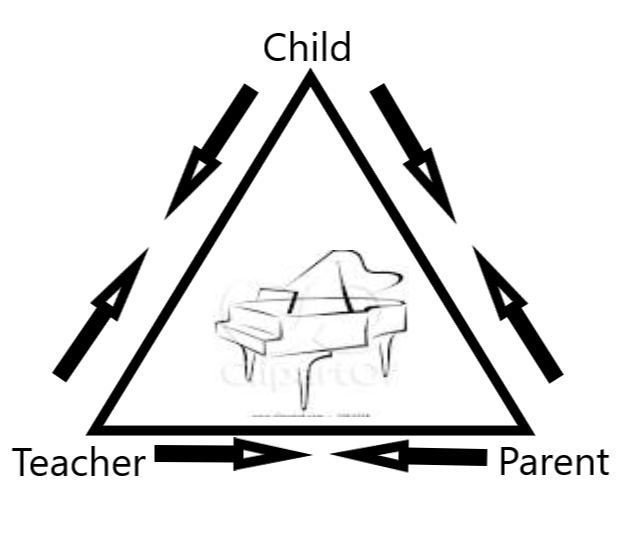
The Suzuki Triangle
One of the most important aspects of the Suzuki approach is the involvement of the parent(s) from the very beginning. Learning the Suzuki way is a family commitment. Parents take lessons first so that they can support their young children in their practice at home. Bi-weekly lessons mean that practice tasks are always achievable steps, closely guided by the teacher and practising parent.
A “mother-tongue” approach.
Dr Shinichi Suzuki noticed that every child has the capability of learning the sounds and complexities of their mother-tongue and that the way young children learn music has close ties with the way they learn language. The Suzuki approach is based on listening and reproducing sounds from an early age. Reading and writing music follows a little later.
Review
Suzuki learners share a common repertoire and review their pieces constantly. This means that they can play and take part in national events and workshops together. They will always have a choice of pieces ready for a concert and are able to work on new technical challenges by referring to earlier repertoire.
Group learning
Group lessons are a great way to join in with a musical community and develop musicianship. In group lessons we play games, read stories, learn more about our repertoire, play together and practise performances. Children will also have an individual lesson. Families are strongly encouraged to observe one another’s lessons.
Performances
We have a concert once each term for all my Suzuki students and book recitals when a child finishes a book of pieces (in place of taking an exam). This is followed by the most important aspect of any concert which is the tea party! There are plentiful opportunities for students to play at Suzuki workshops, playathons and graduations.
To find out more about the Suzuki approach, head to the website of the British Suzuki Music Association. If you wish to observe some lessons, please get in contact with me!